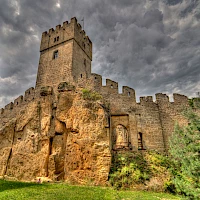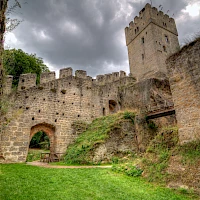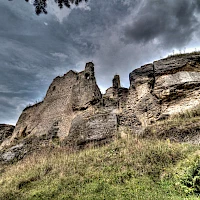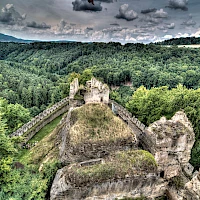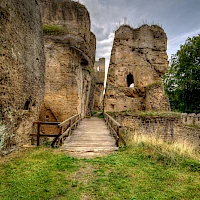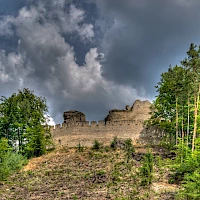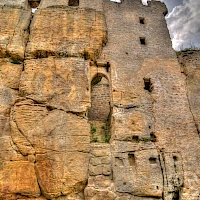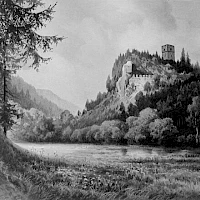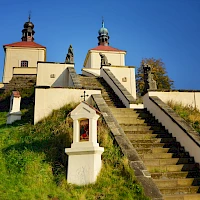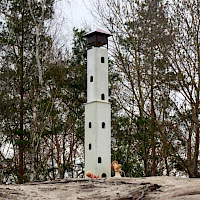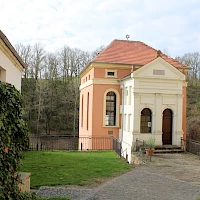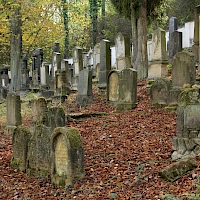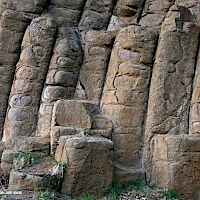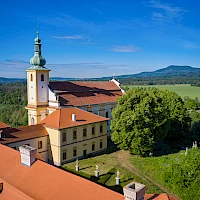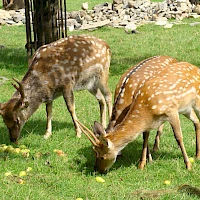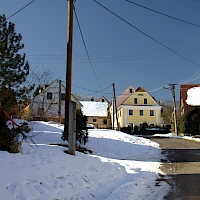The rock castle hidden in a forest area 3 km east of Úštěk was probably built in the 13th century by the Berks of Dubá. A branch of this family named itself after the castle; in 1374 it is documented for the first time by its sale by Hans of Helfenburg to the Prague archbishop Johann Očko of Wlašim. For the period before that, there is a tradition in old writings that in 1350 the Italian tribune Cola di Rienzo was arrested at Helfenburg.
In the course of time the castle had different owners, e.g. Johann Smiřický of Smiřice, Zdenko of Sternberg, King George of Podiebrad, the bailiff of Upper Lusatia, Wilhelm of Ilburg, Heinrich II of Kurzbach and Sezima of Auscha. The property was confiscated in 1623 after the Battle of the White Mountain and went to the Jesuits in Liebeschitz. At that time it was probably already uninhabited, the last mention of it as a castle dates back to 1591. On November 1, 1620 the imperial troops under Karl Bonaventura of Buquoy plundered the abandoned Helfenburg and set it on fire.
The ruin fell into disrepair and even its name was forgotten. In 1679 Bohuslav Balbín described it as a desolate Hradek castle. In oral tradition, the name Affenburg had become common for a long time. In 1887, the owner of the manor, Josef Edler von Schroll, had extensive securing works carried out on the ruin.
The battlemented ring wall and the keep have been preserved. In the Zwinger there is the well, the depth of which is still 30 meters. In the castle gate there are two large coats of arms, which are now heavily weathered. One represents the coat of arms of the Lords of Wlašim with two vulture heads. The other, with a crossbar, is that of the Archbishopric of Prague.
Based on these coats of arms, the castle researcher Friedrich Bernau clearly identified it as the Helfenburg. Because of these coats of arms and the large number of castle ruins, other attempts to find out the historical name of the castle had failed before, because they had started from the approach that the ruin could not be the Helfenburg, because it did not bear the coat of arms of the Helfenburgs, an elephant.
source: Wikipedia

